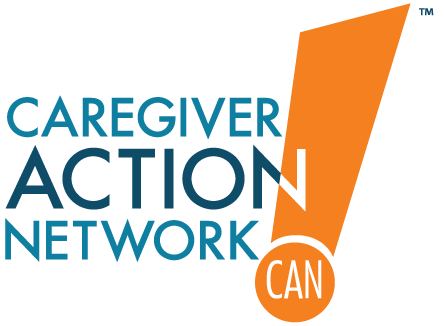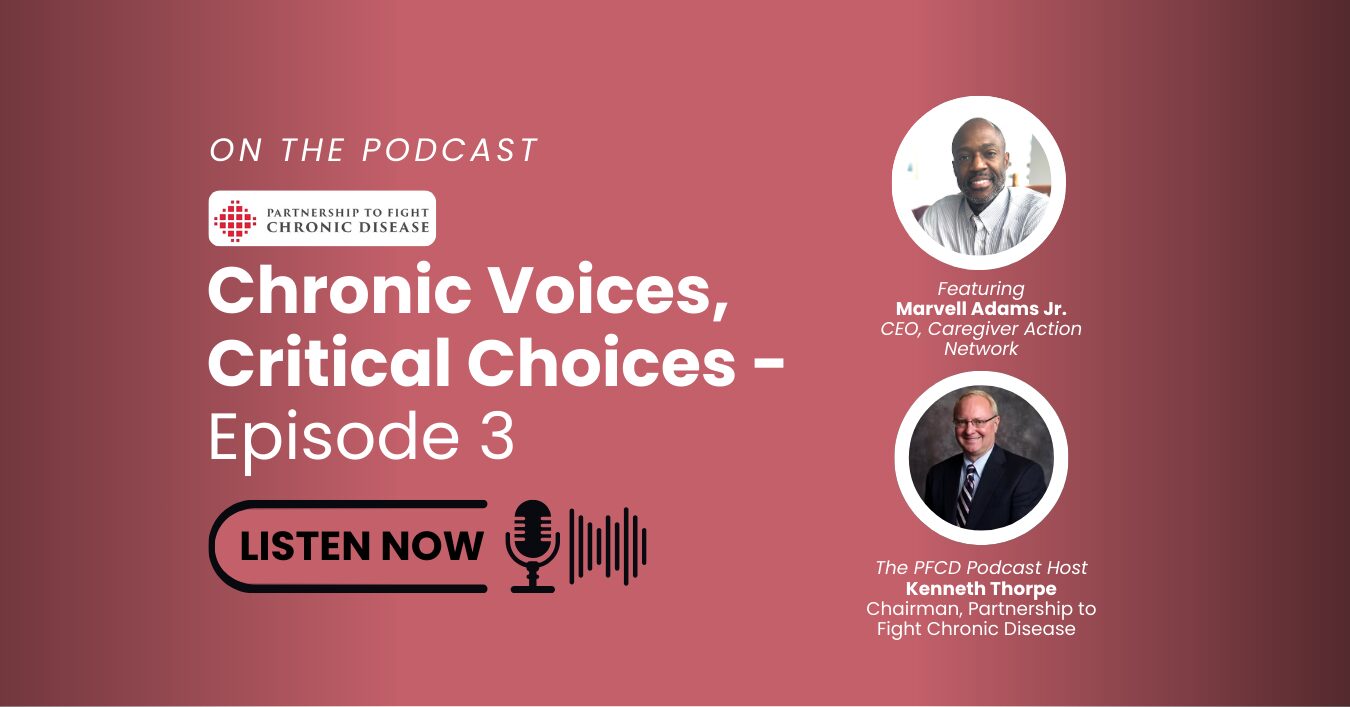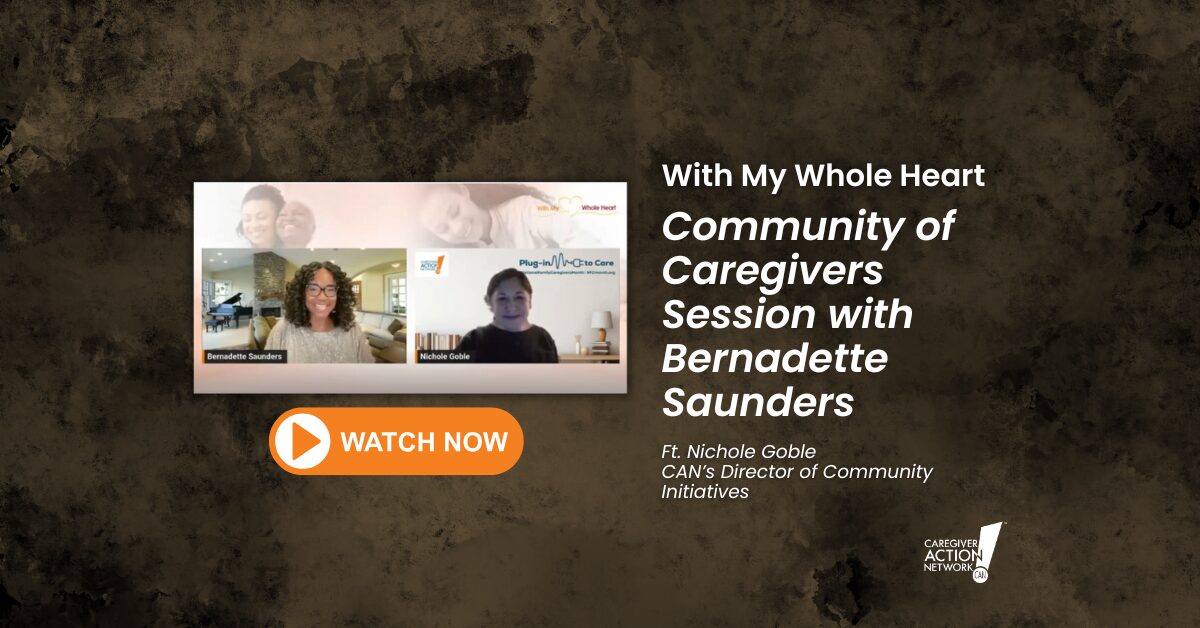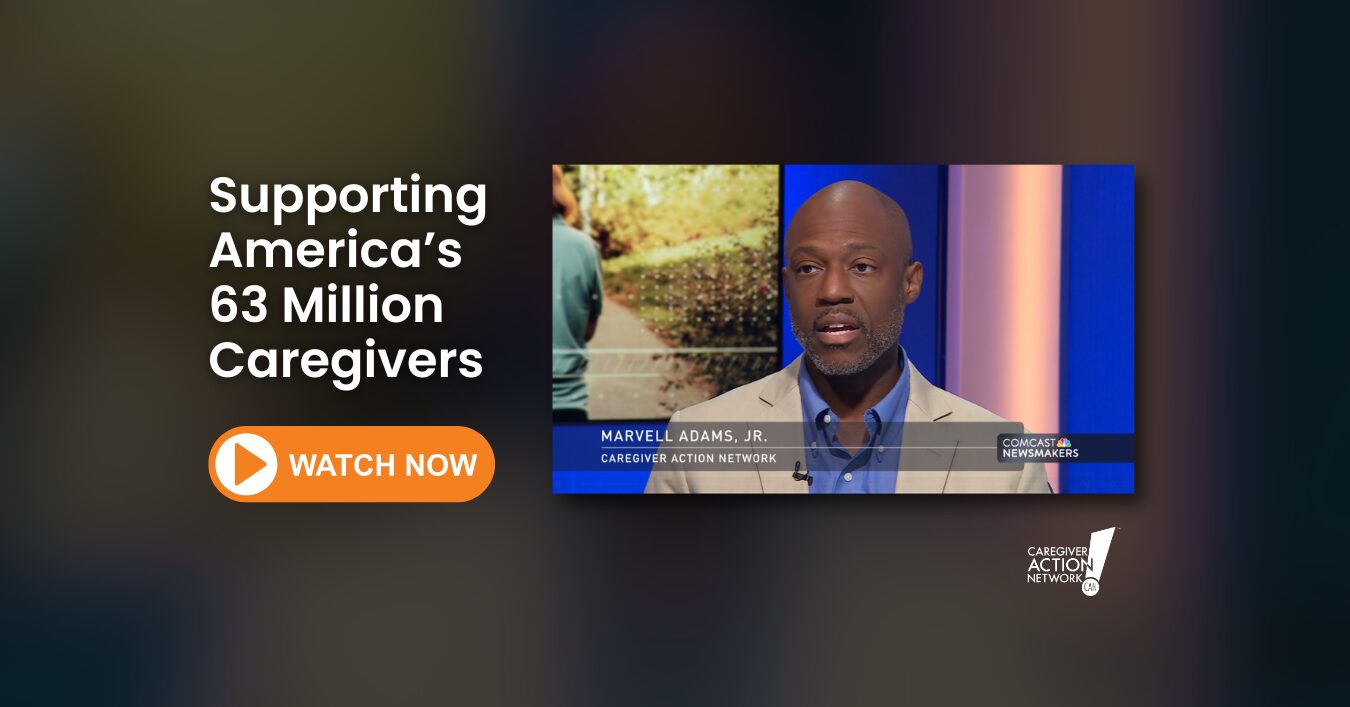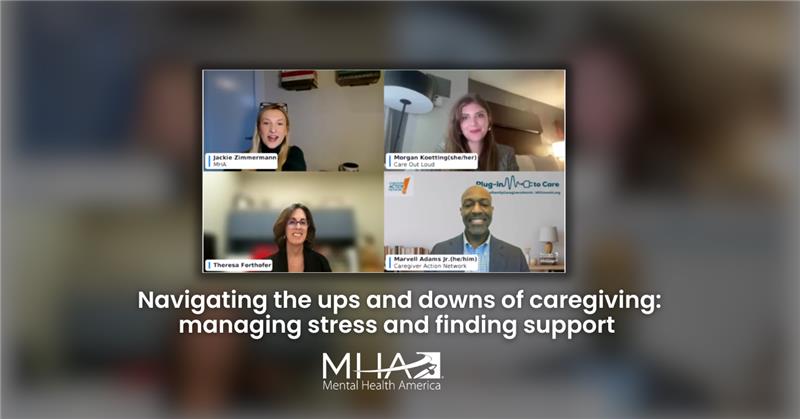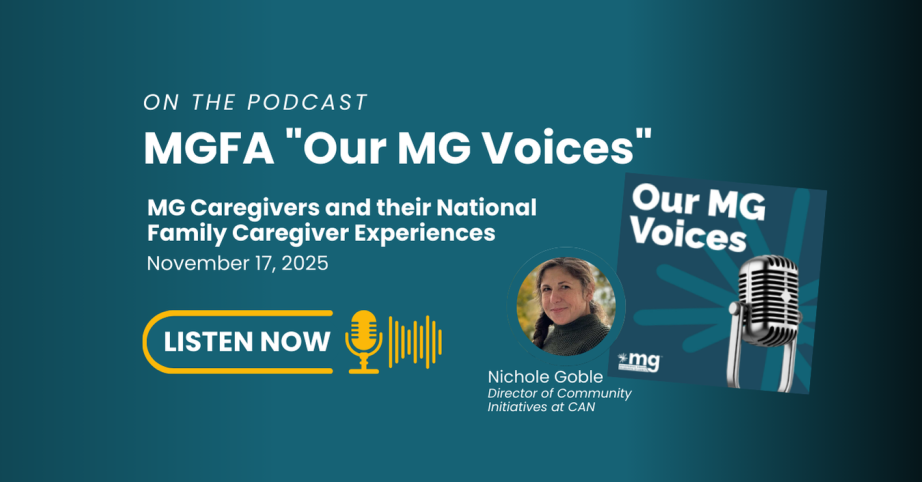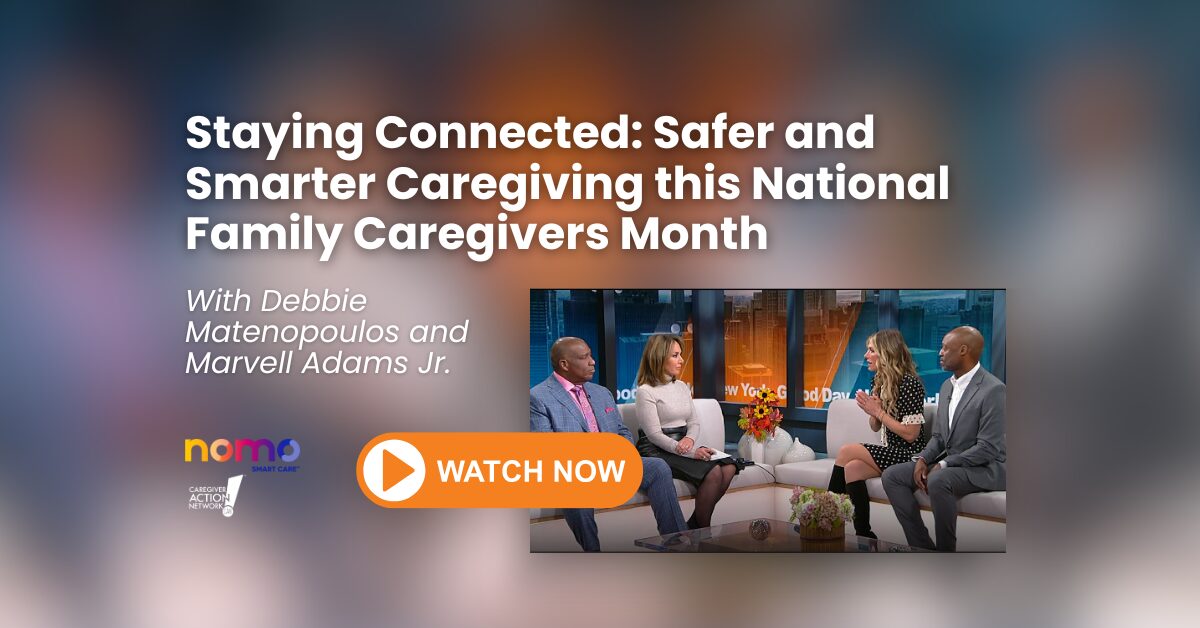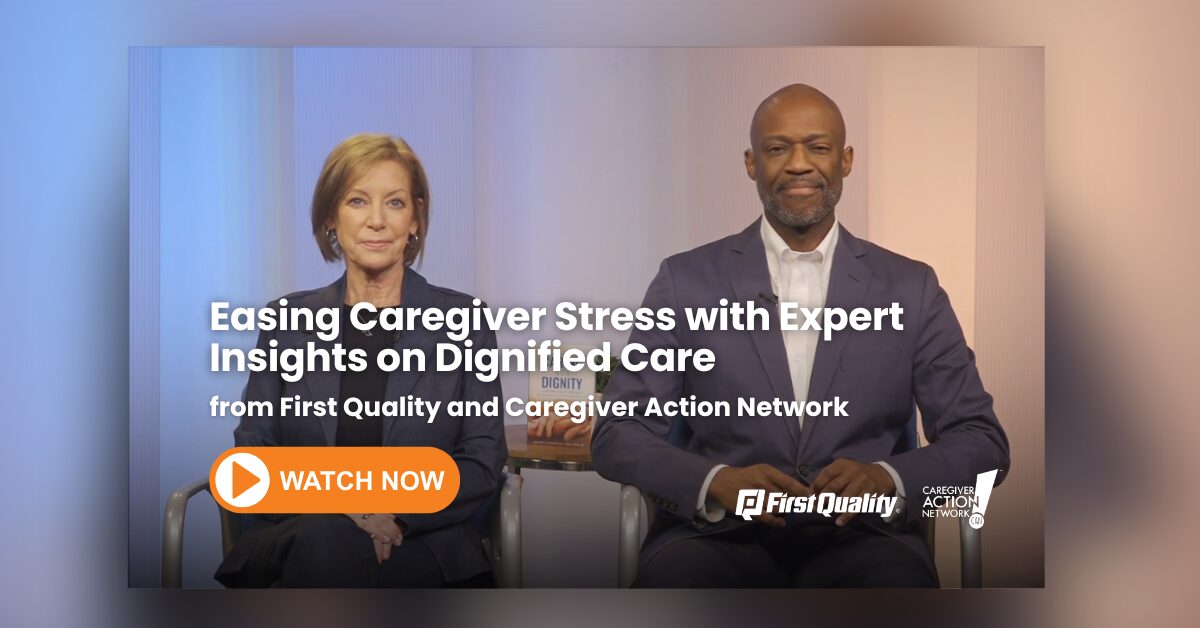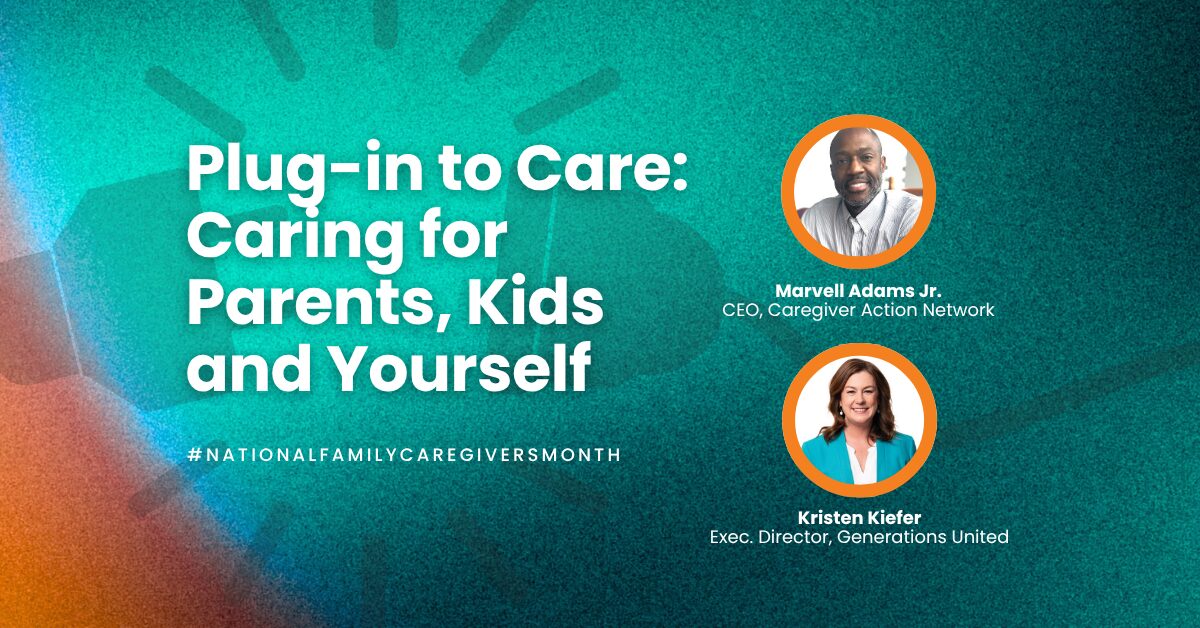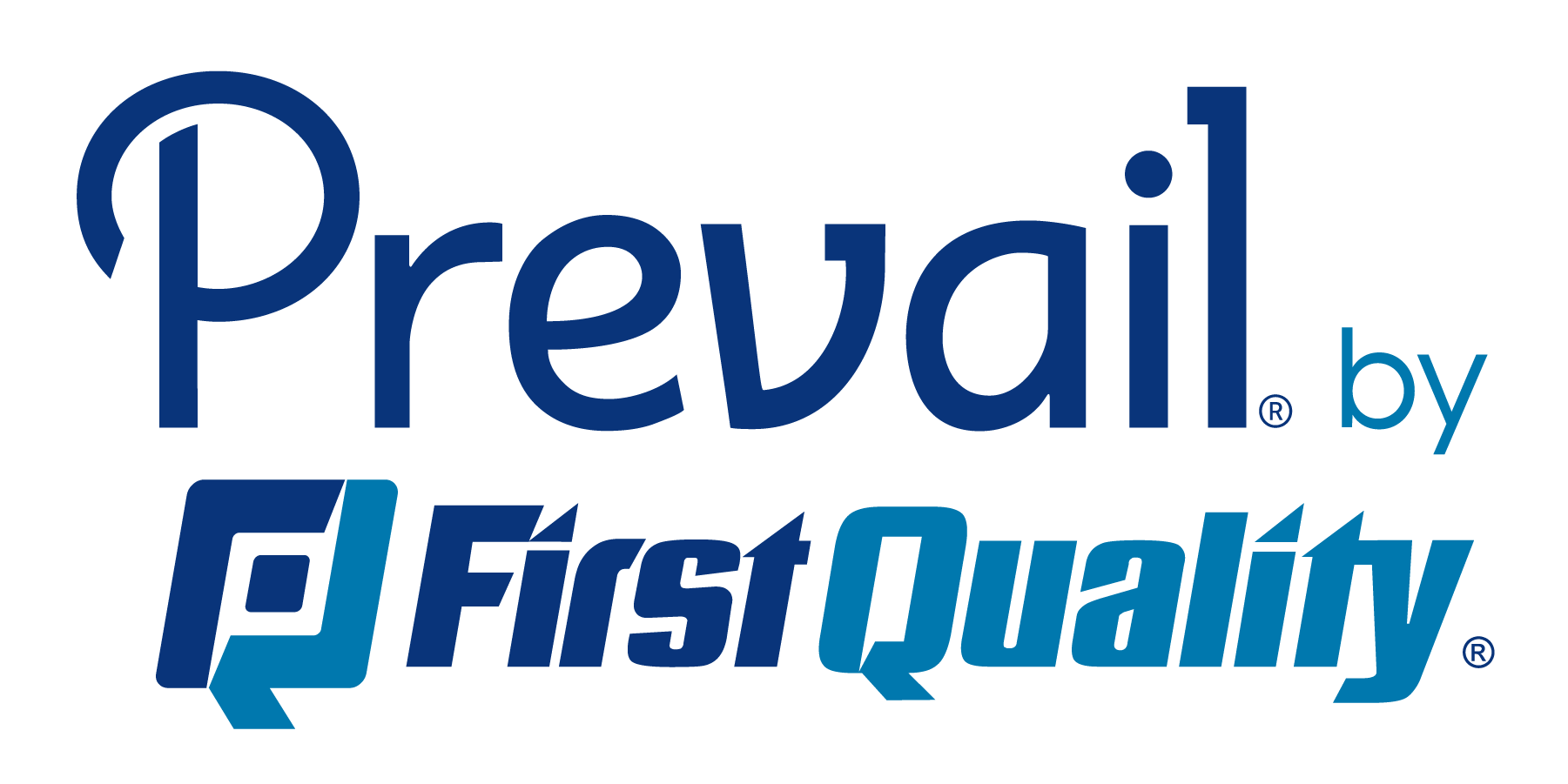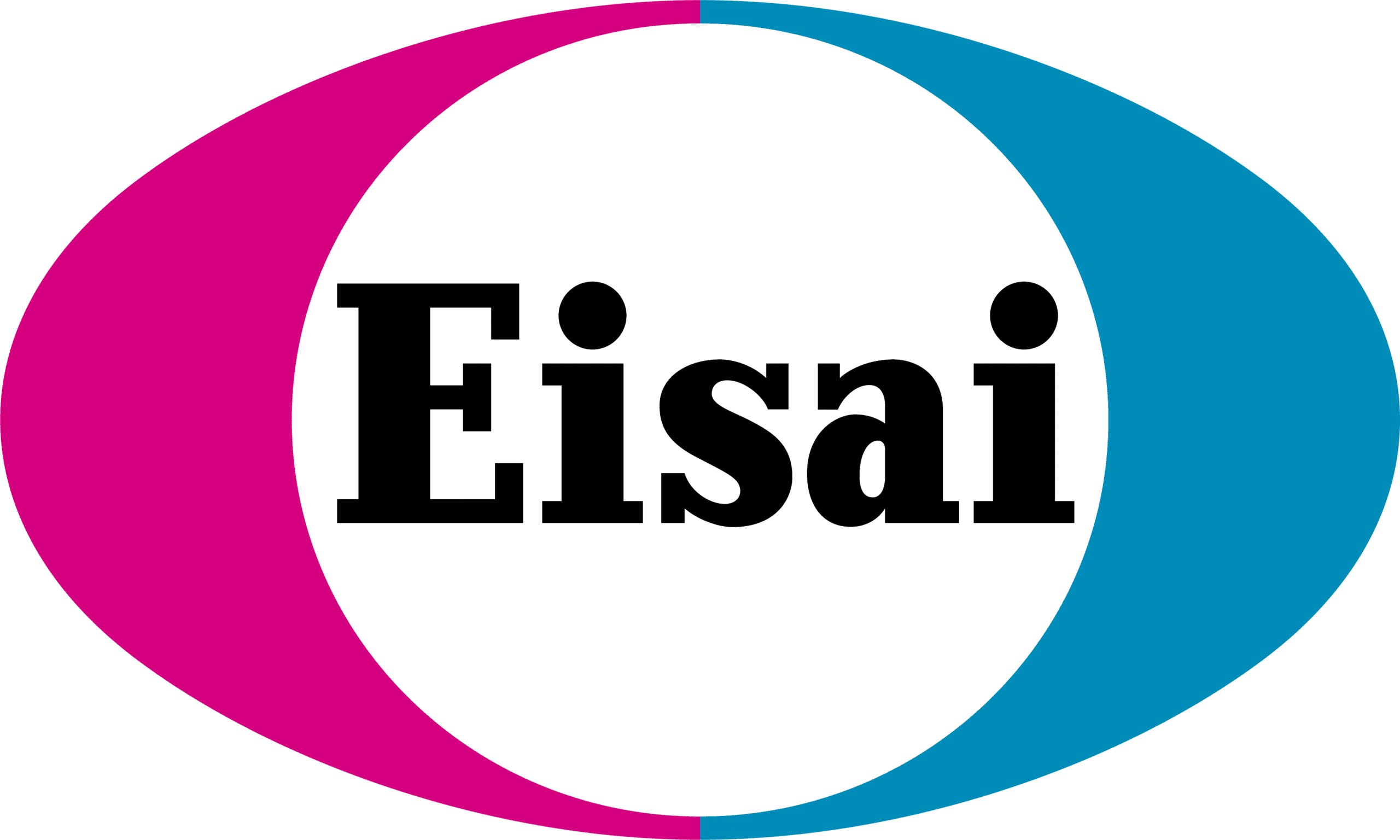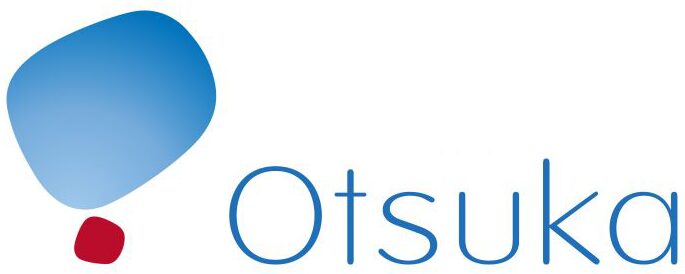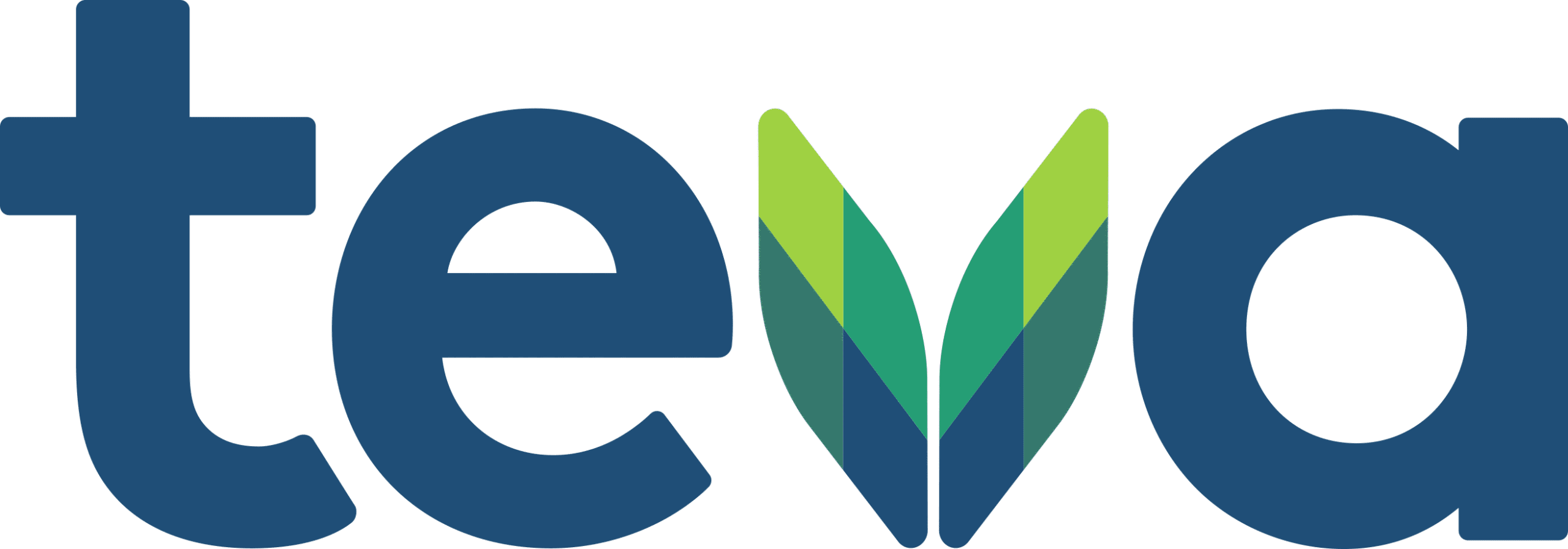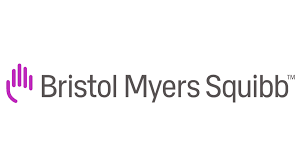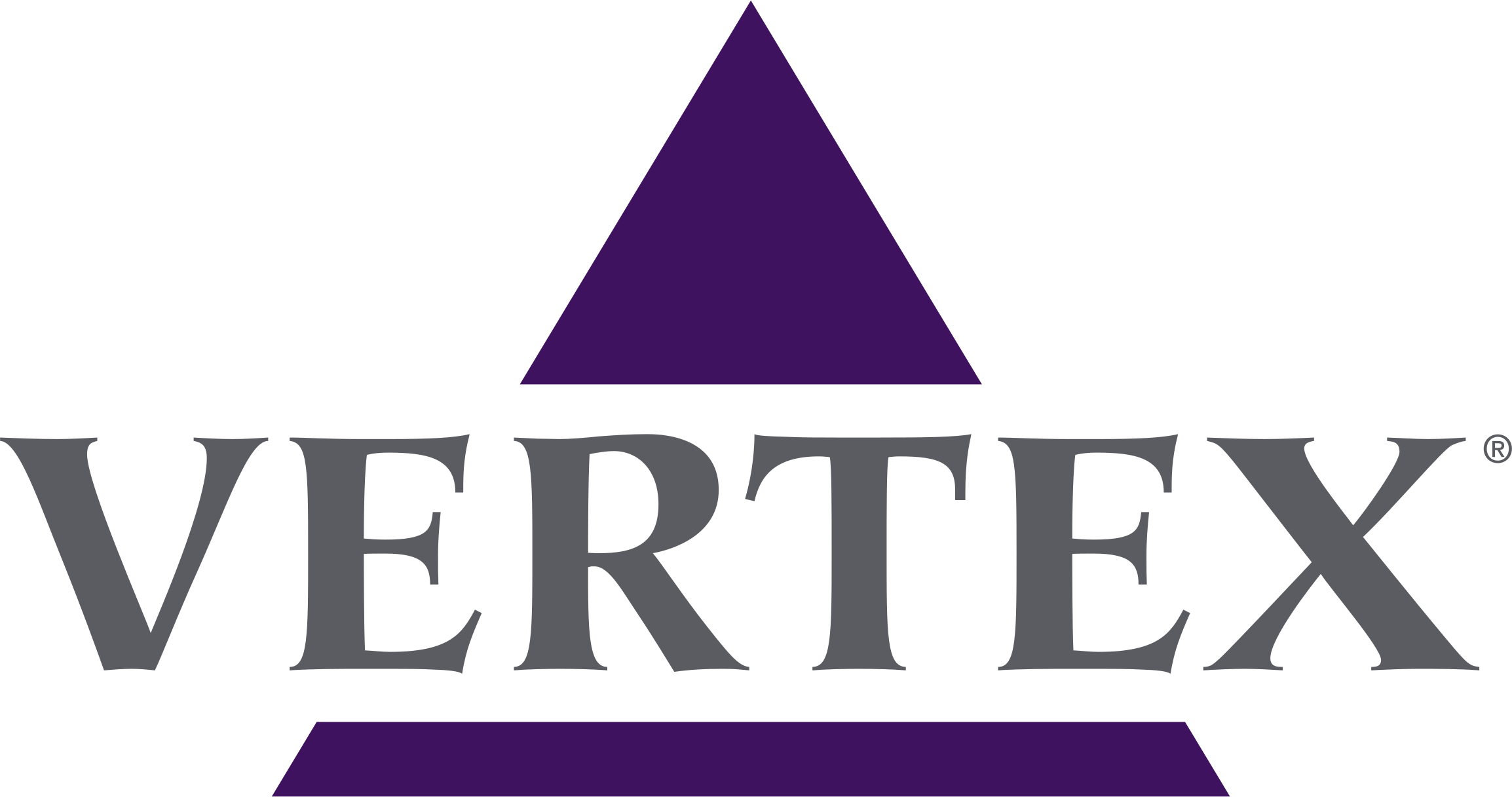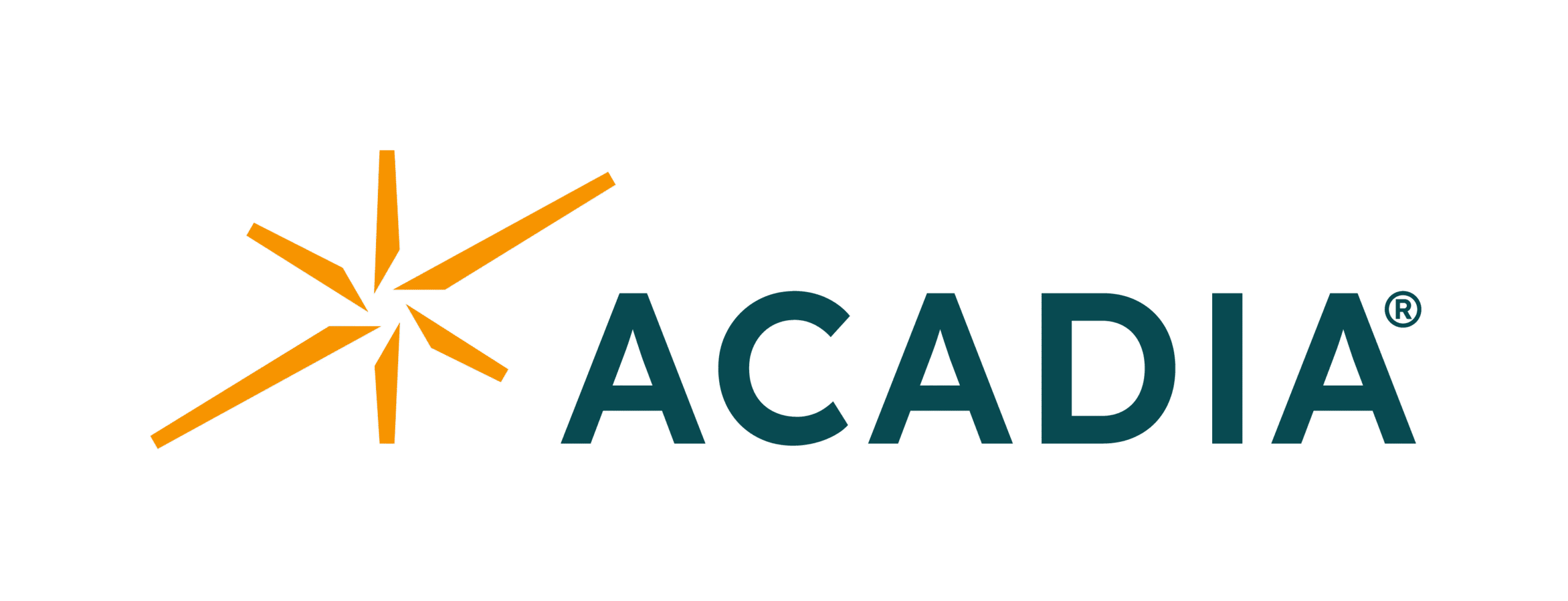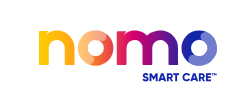National Family Caregivers Month 2025
National Family Caregivers Month 2025

Even though National Family Caregivers Month has ended, your caregiving doesn’t stop — and neither does our support.
Caregiver Action Network encourages caregivers everywhere to continue to Plug-in to Care this holiday season and beyond.
Plug-in to Care focuses on connection — helping caregivers easily access trusted tools, supportive communities, and practical resources that make the caregiving journey a little less overwhelming and a lot more supported.
This November, Caregiver Action Network invites you to join us in recognizing family caregivers across the country during National Family Caregivers Month (NFC Month).
Our 2025 theme, Plug-in to Care, focuses on connection—helping caregivers easily “plug in” to vital support tools, trusted networks, and educational resources that can make the caregiving journey less overwhelming and more supported.
Each November, the President of the United States issues a proclamation recognizing National Family Caregivers Month. This annual tradition underscores the vital role caregivers play in our nation.
Members of Congress introduced a bipartisan resolution recognizing National Family Caregivers Month—using their own caregiving stories to turn lived experience into action for families nationwide.
Connect to Trusted Resources by Topic
Caregiving doesn’t take a break — especially during the holidays.
Our goal is to help you Plug-in to Care with easy access to the right tools, support, and community—so you can go from feeling overwhelmed to connected with just a tap, click, or conversation.
Hover over or click on each of the health conditions below to reveal a list of helpful, vetted resources to guide your unique caregiving journey:
Alzheimer’s
Alzheimer’s disease slowly changes how a person thinks, remembers, and connects with the world around them. Caring for someone with Alzheimer’s is an evolving journey—these resources can help families find strength, understanding, and guidance along the way.Alzheimer’s
- Course: Addressing Psychological & Behavioral Symptoms
- Guide: Proven Strategies for Cognitive Support
- Webinar: Managing Alzheimer’s Challenges
- Guide: Understand & Manage Dementia-Related Behaviors
- Guide: Potential Causes of Memory & Thinking Issues
- HFC: Respite, Support Groups, and Programs for Caregivers
Incontinence Care
Incontinence care can be an emotional and practical challenge, affecting comfort, dignity, and daily routines for both caregiver and loved one. These resources offer insight, compassion, and practical strategies to support families through this sensitive aspect of caregiving.General Aging
Aging brings changes in strength, memory, vision, and hearing that can affect daily routines and independence. These resources offer guidance and support to help caregivers navigate the evolving needs of their loved ones with compassion and confidence.Cancer
Caring for someone with cancer means navigating physical, emotional, and practical challenges that can change from day to day. This resource offers custom guidance, strength, and support to help caregivers through every stage of the cancer journey.Mental Health
Mental health challenges affect how a person thinks, feels, and experiences reality, often in ways that can be hard to predict or understand. These resources offer guidance and support to help caregivers navigate the complexities of caring for a loved one living with these conditions.Schizophrenia
Rare diseases can bring uncertainty and isolation, with symptoms and treatments that are often unfamiliar. These resources offer information, connection, and support to help caregivers navigate the complexities of caring for someone with a rare condition.Schizophrenia
- Guide: Navigating HIPAA as a Family Caregiver for a Loved One with Schizophrenia
- Guide: Schizophrenia Symptoms, Causes, Diagnosis, Treatment & More
- Alliance: Advancing Systemic Change & Promoting Recovery for Schizophrenia
- Resources: Conversations & Education on Long-Acting Injectable Antipsychotics (LAI)
- Initiative: Living with Schizophrenia–Live Your PosSCZible
Substance Use Disorder
Caring for someone with a substance use disorder can be a complex journey filled with hope, setbacks, and resilience. These resources provide understanding and guidance to help caregivers support recovery while also caring for their own well-being.Acute Pain
Acute pain can appear suddenly and intensely, often disrupting daily life and routines. These resources offer guidance to help caregivers understand, manage, and support loved ones through the challenges of pain recovery.Rare Diseases
Rare diseases can bring uncertainty and isolation, with symptoms and treatments that are often unfamiliar. These resources offer information, connection, and support to help caregivers navigate the complexities of caring for someone with a rare condition.ATTR Amyloidosis
ATTR Amyloidosis is a rare condition where abnormal proteins build up in the body, affecting the heart, nerves, and other organs. These resources provide insight and support to help caregivers understand the disease and manage its unique, often unpredictable challenges.Long-Term Care Insurance Denials & Caregiver Rights
Navigating long-term care insurance denials can be overwhelming, especially when it impacts a loved one’s needed support. These resources help caregivers understand their rights and provide practical steps to advocate for fair coverage and quality care.Long-Term Care Insurance Denials & Caregiver Rights
Brain Health
Brain health challenges like traumatic brain injuries (TBIs) and PTSD can change how a person thinks, feels, and interacts with the world. These resources offer insight and support to help caregivers navigate recovery, adaptation, and daily life with compassion and understanding.Movement Disorders
Movement disorders cause unexpected changes in how a person moves and functions, often affecting independence and daily life. These resources offer guidance and support to help caregivers manage the physical and emotional aspects of this unique caregiving journey.Tardive Dyskinesia (TD)
Tardive Dyskinesia (TD) causes unexpected, often involuntary movements that can change how a person moves, speaks, or expresses themselves – often going unnoticed and undiagnosed. Caring for someone with TD comes with distinct challenges—these resources offer guidance and understanding for the path ahead.Mobility Limitations
Mobility limitations from conditions like paralysis, amputation, or osteoporosis can reshape how a person moves through the world and how caregivers provide support. These resources offer practical guidance and encouragement to help families adapt, maintain independence, and navigate daily challenges together.Neurological
Caring for someone with a neurological condition can be challenging as symptoms may change unpredictably, affecting movement, communication, and behavior in ways that require constant adaptation and patience. These resources can help.Neurological
Guides on caring for a loved one with:
Other Health Conditions
Other Health Conditions
Guides on caring for a loved one with:
Resources Beyond Treatment
Initiatives focused on providing patients and their families with support and meeting their evolving needs.Resources Beyond Treatment
- Support Initiatives: Magnolia Partners Along the Patient Journey
- Financial & Legal Tools for Family Caregivers
- Services: Nonmedical Support for Caregivers, Older Adults & Adults with Disabilities
- Guide: Custom Resources & Self-Care for Cancer Caregivers
- Resources: One Liver to Love — Information & Guidance on Liver Cancer
Care Connections: The Plug-in to Care Webinar Series
Care Connections: The Plug-in to Care Webinar Series
All episodes of Care Connections: The Plug-in to Care Webinar Series are now available on demand. Hear from experts and fellow caregivers as they share practical strategies, real-life experiences, and trusted guidance you can use anytime.
Watch the full series, including:
- Plug-in to Care: Finding Your Way Through Resources
- Plug-in to Care: Building Caregiver-Friendly Workplaces
- Plug-in to Care: Finding Strength in Community and Connections
- Plug-in to Care: The Intergenerational Balancing Act — Caring for Parents, Kids, and Yourself!
- Plug-in to Care: Turning Caregiver Experience into Action

NFC Month in the News
Care FAQs
Caregiver Innovation Council
Technology can be a lifeline for caregivers — helping them stay organized, connected, and supported. Through the Caregiver Innovation Council, Caregiver Action Network partners with leading technology companies to explore new solutions that make caregiving easier. From digital health tools to caregiver apps, these innovations are helping families plug in to care more efficiently and effectively.
Nonprofit partners and patient advocacy groups play a vital role in Caregiver Action Network’s efforts during National Family Caregiver’s Month and throughout the year.
Nonproft partners and patient advocacy groups play a vital role in Caregiver Action Network’s efforts during National Family Caregiver’s Month and throughout the year.
